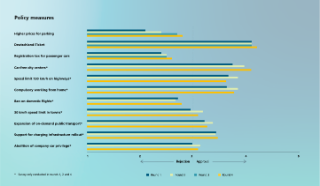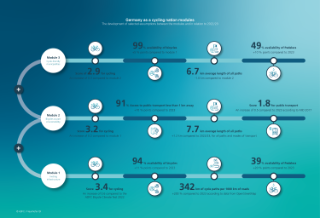The following conclusion is drawn in a publication that has been taken up by a German media: If the policy framework for nuclear power plants (NPPs) had been positive in Germany in 2002 and nuclear power had not been phased out, the country would be better off in terms of both spending and greenhouse gas emission reductions in the electricity sector than it is with the current energy transition. Overall, an alternative policy to keep existing NPPs in 2002 and build new ones would have halved spending and ensured Germany could meet its climate targets. This statement is based on a technology comparison of the expenditures for renewable energies on the one hand with a hypothetical scenario of not phasing out nuclear power and expanding NPPs in Germany on the other. The authors of this response are of the opinion that the underlying calculation is based on a fundamental methodological error, which leads to double counting most of the expenditure on renewable energies. The analysis conducted is therefore not scientifically tenable.
more infoBlog Articles 2024
-
-

In the MobilKULT project, we are investigating the connections between infrastructures, mobility habits, mobility culture and attitudes toward policy measures in the field of mobility such as the Deutschland-Ticket. The survey conducted in spring 2024 looks at how much people’s opinions about different mobility measures diverge. Our findings: Across different social groups, the responses show a high degree of similarity and continuous support for measures such as the Deutschland-Ticket – but there is also agreement that there is currently little support for the transformation of the transport sector.
more info -

On behalf of the German Cyclists' Federation (ADFC), researchers at Fraunhofer ISI carried out a new assessment of the potential for cycling in Germany. If comprehensive political measures aimed at becoming a bicycle-friendly country are implemented, the share of cycling on all routes up to 30 kilometres in length could increase to an average of 45 percent. An additional 19 million tonnes of CO2-equivalent (CO2e) greenhouse gases (GHG) could be saved in transport every year.
more info -

Research planning depends on knowledge about the future. Here, there are various foresight methods, which are becoming better all the time, as they are based on large quantities of data and use AI tools. Foresight based on AI is anything but trivial: Dr. Philine Warnke is a foresight expert at Fraunhofer ISI and has shared the secret of technical foresight, which allows her to recognize trends, before others recognize them. However, results at the push of a button do not exist.
more info -

According to media reports, the impending cuts to German battery research could have a drastic impact on the competitiveness of the German and thus European battery industry - because this could further increase the already noticeable shortage of skilled labour and scientific experts. In this article innovation researchers from Fraunhofer ISI explain what is at stake and emphasise that the budget for research and development should actually be increased rather than cut. After all, the upcoming market ramp-up in electric mobility by 2030 will create an enormous need for battery expert knowledge.
more info